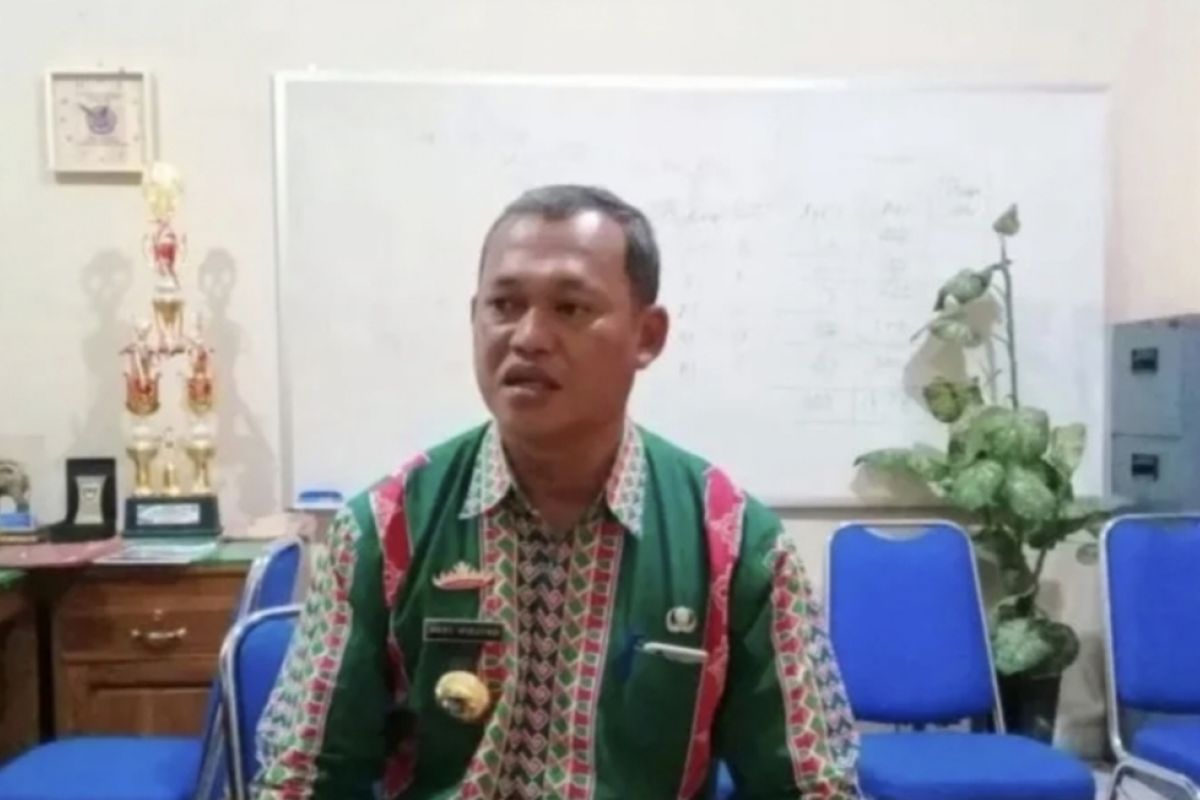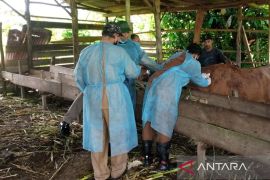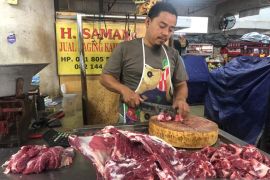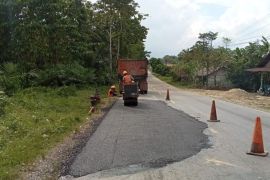"We coordinated with the Agriculture and Livestock Office last May in regard to prevention and transmission of this foot-and-mouth disease. And on May 11 (2022), we formed a team in order to control the (spread of the) disease," head of the Metro City Food, Agriculture, and Livestock Security Office, Heri Wiratno, informed in Metro on Wednesday.
He said that the team will educate the public, particularly local farmers, about foot-and-mouth disease.
"Aside from that, we are also imposing restrictions on livestock (distribution) and supervision at slaughterhouses. And until now, we are still (disseminating information) to all sub-districts and livestock groups," he added.
He said that his administration has edified animal slaughterers, sellers of livestock, and meat traders.
These measures have been undertaken to ensure that all meat distributed in the markets is safe for consumption, he explained.
Wiratno also appealed to breeders to remain alert for the symptoms of foot-and-mouth disease, given that it attacks both ruminant and non-ruminant livestock.
Related news: Demak Police to monitor public farms to prevent FMD transmission
"This disease attacks livestock such as buffaloes, cows, goats, sheep, and pigs," he said.
The incubation period of the virus that causes the disease is 1–14 days. FMD is marked by a lack of appetite and the appearance of lesions on the mouth and nails.
"Usually, there is a lesion, or we usually say blisters, like canker sores, in the oral cavity, on the tongue, on the gums, on the lips, and then on the nails. That's why it is called foot-and-mouth disease. That's the characteristics we can see there," Wiratno explained.
Meanwhile, a cattle breeder from Metro city, Kuswahyudi, said that he had been informed about the disease. In an effort to mitigate it, cowsheds at his farm are being cleaned every day, and animals are being provided a highly nutritious meal.
“Hopefully, this disease doesn't (spread in) Metro. Indeed, we routinely give concentrate because it is to fatten (the livestock). But with this disease, we increase (the portion) a little so that the cattle are healthier and have a higher immune system. Actually, we also don't accept cattle from outside. Our cattle are bred," he explained.
He said he expected that Metro livestock would not be infected with the disease so that farmers do not lose money since Eid al-Adha is coming soon.
Related news: Foot-and-mouth disease detected in East Lombok livestock: govt
Translator: Ruth ISK, Hendra K, Mecca Yumn
Editor: Rahmad Nasution
Copyright © ANTARA 2022












